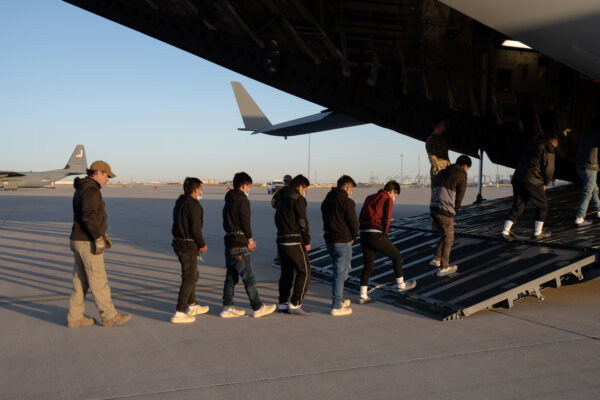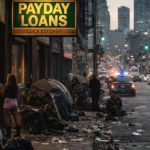![]() The Trump administration will not be allowed to expand certain efforts aimed at quickly deporting illegal immigrants who live far away from the U.S. border, according to a filing on Nov. 22 by a federal appeals court.
The Trump administration will not be allowed to expand certain efforts aimed at quickly deporting illegal immigrants who live far away from the U.S. border, according to a filing on Nov. 22 by a federal appeals court.
“We grant the government’s motion in part and deny it in part,” court documents reviewed by The Epoch Times showed.
In a 2–1 ruling, U.S. Circuit Judges Patricia Millett and J. Michelle Childs defended their order.
The judges ruled that even though the DHS, led by Secretary Kristi Noem, would likely be successful in showing that the “systems and procedures employed to evaluate detained individuals’ claims of credible fear are constitutionally sufficient,” it violates an illegal immigrant’s due process rights under the U.S. Constitution’s Fifth Amendment.
“For those reasons, we deny the Department’s motion for a stay pending appeal of the district court’s order suspending the effective dates of those portions of the Expansion Order and Huffman Memorandum that establish the system for determining eligibility for Expedited Removal,” the order by Circuit Judges Millett and Childs said.
“We grant a stay to the extent that the district court’s order required any changes to the procedures for determining credible fear of harm upon removal for those individuals who qualify for Expedited Removal,” it said.
U.S. Circuit Judge Neomi Rao dissented.
“The government suffers irreparable harm from this impermissible judicial interference with the Secretary’s authority to carry out expedited removals, and the balance of the equities tips in the government’s favor. I respectfully dissent,” Rao wrote.
The Epoch Times contacted DHS for comment.
For decades, the government’s Expedited Removal process only applied to people who arrived in under 14 days and were encountered within 100 miles of a border or at sea, the order stated.
On Jan. 21, the Trump administration extended Expedited Removal nationwide, which made illegal immigrants—living anywhere in the United States—vulnerable to being deported if they were unable to prove how they arrived in the United States and their activities in the country for the past two years.
The order reached beyond the usual border-only states and sparked immigration operations in cities including Chicago, Dallas, New York City, and St. Louis as the Department of Homeland Security intensified efforts to deport people living in America illegally.











